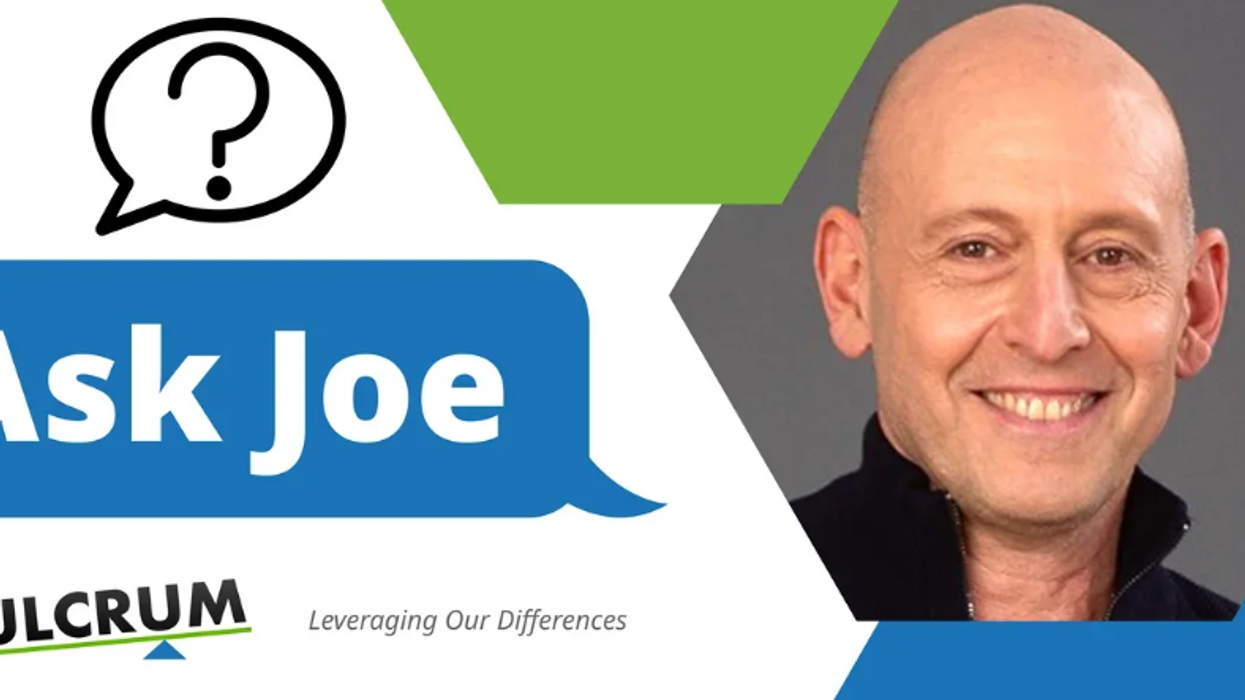Hello Joe,
I have a couple of people in my team that I supervise that are diametrically opposed politically. I have done my best to keep politics out of work, but it’s only getting worse. I’ve spoken to them both individually and I’ve given them warnings, but that doesn’t seem to work. I don’t want to lose them; they are good workers. But I don’t know what to do. Any ideas?
Done
Hey Done,
When I’m working with organizations on issues like this, I, of course, gather information from all sides before I offer a strategy. With the information you have given, I can offer general suggestions.
I think your “pen name” says it all: done. It sounds like you’ve done your best to deal with this situation in a civil way, expecting the two to step up and work it out. They are not. So, now it’s time to add some fierceness to your civility. In other words, I would suggest that this be the underlying message: “I need to see right away some movement towards finding solutions to this.” Has it gone so far for you to talk to HR to see what steps you can take? You may want to do that as part of your preparation for a conversation.
If you’ve read my past articles, you may have heard me say a number of times, “You can’t change people but you can influence behavior. People don’t change; they transform.” You are not asking them to become something they are not; you are not asking them to change their viewpoints and beliefs. You are letting them know that their behavior is working against the core values of how you would like you and your team to treat one another, and it must shift.
I would start with speaking with each of them individually to let them know that you want to schedule a meeting with the three of you. Let them know the urgency of the situation. And before you meet, make sure you are well prepared – facts, documentation, knowledge of company procedure, your strategy and approach.
Something to remember is that nobody wants to have these kinds of conversations, so they will most likely revert to patterns to avoid the issue. An important part of the strategy is to prevent these fight-flight-freeze responses from others and help them be more receptive and malleable to hear and receive the urgency of what you want to communicate.
In order to do that, remember these 4 key points:
- Do your best to keep your nervous system regulated so you can stay clear, in your power and not easily thrown off.
- Meet the others where they are. Some of us need more time to process and open up to change. While you want to see concrete shifts in behavior, the best way to ensure a lasting effect is to let them start from where they are and progress from there.
- Create a space of more safety and trust. This minimizes their reactivity and also helps them open to working together to come up with solutions to the problem.
- Speak your truth. When you commit to sharing your perspective on the situation, you give the other the benefit of the doubt and give them a chance to share their truth. By doing this, you get more buy-in and usually learn something new.
As you start the meeting, set some clear guidelines and rules of engagement to ensure respect and safety. When I am working with individuals or groups who are at odds with each other, or in opposition with each other, I introduce a question that is key to the Fierce Civility mediation approach: “Acknowledging the fact that you will not necessarily get everything you want, are you prepared to put in the work to find a solution that works for both of you, as well as the rest of us?” This can take minutes, hours, days or weeks to get all parties to buy in. But the dialogues that transpire help facilitate the necessary truth-telling, healing, reconciliation and finding common ground that needs to precede working towards solutions.
If you get a direct “no,” then you have your answer as to whether they are in alignment with your company’s values, and at this point you can discuss if this is the best work environment for them. If they say “yes,” then you have the buy-in needed to ensure that they take responsibility for their actions and take some concrete steps towards resolution of the issue.
The Rolling Stones knew what they were talking about: Not getting everything you want doesn’t mean that you can’t get what you need. When all involved can clarify their needs, then you have plenty of creative material for all of you to work together to make the situation work for everyone. Win-win.
I hope this gives you some sense of clarity and confidence to move forward, Done. Again, without knowing the specifics or your situation, I can’t tell if this will work in this context. If you’d like to explore this approach more, check out my book, Fierce Civility.
Find the conviction, clarity, focus and compassion in your fierceness,
Joe
Check out Joe’s new bestselling book Fierce Civility: Transforming our Global Culture from Polarization to Lasting Peace.
Have a question for Joe? Send an email to AskJoe@fulcrum.us.




















